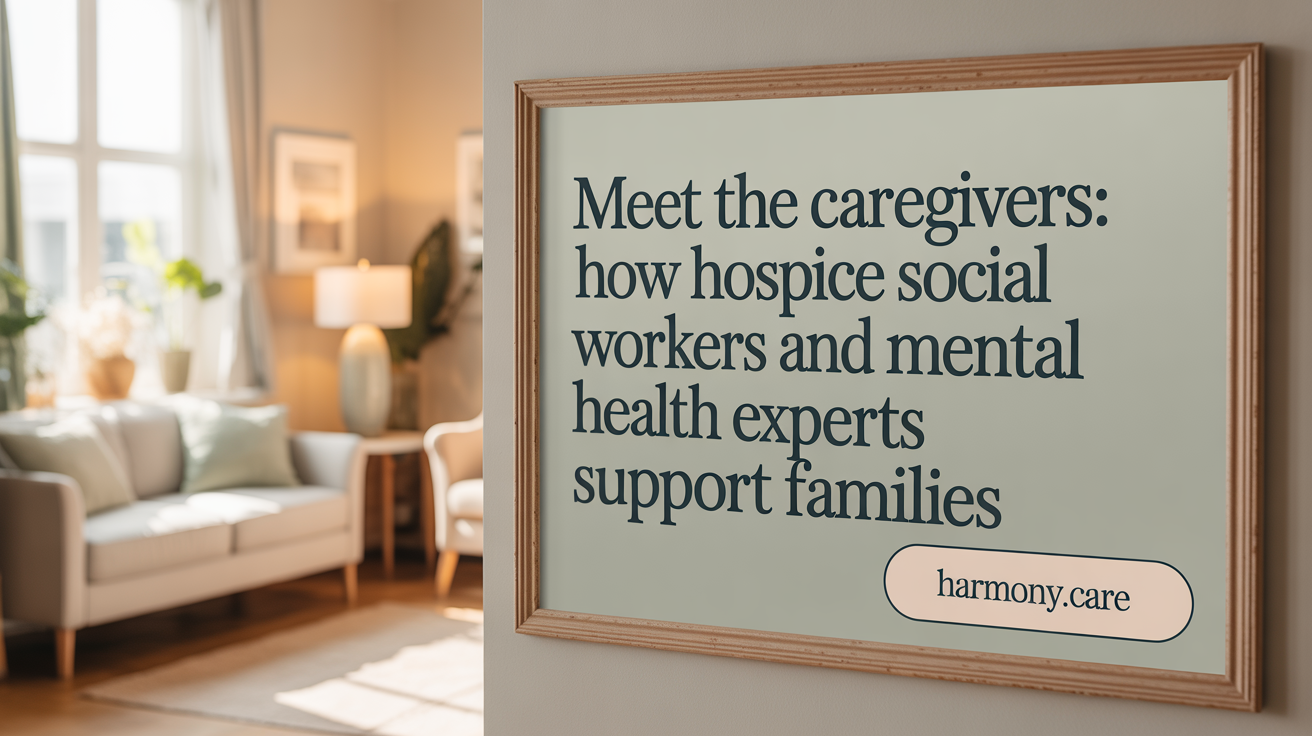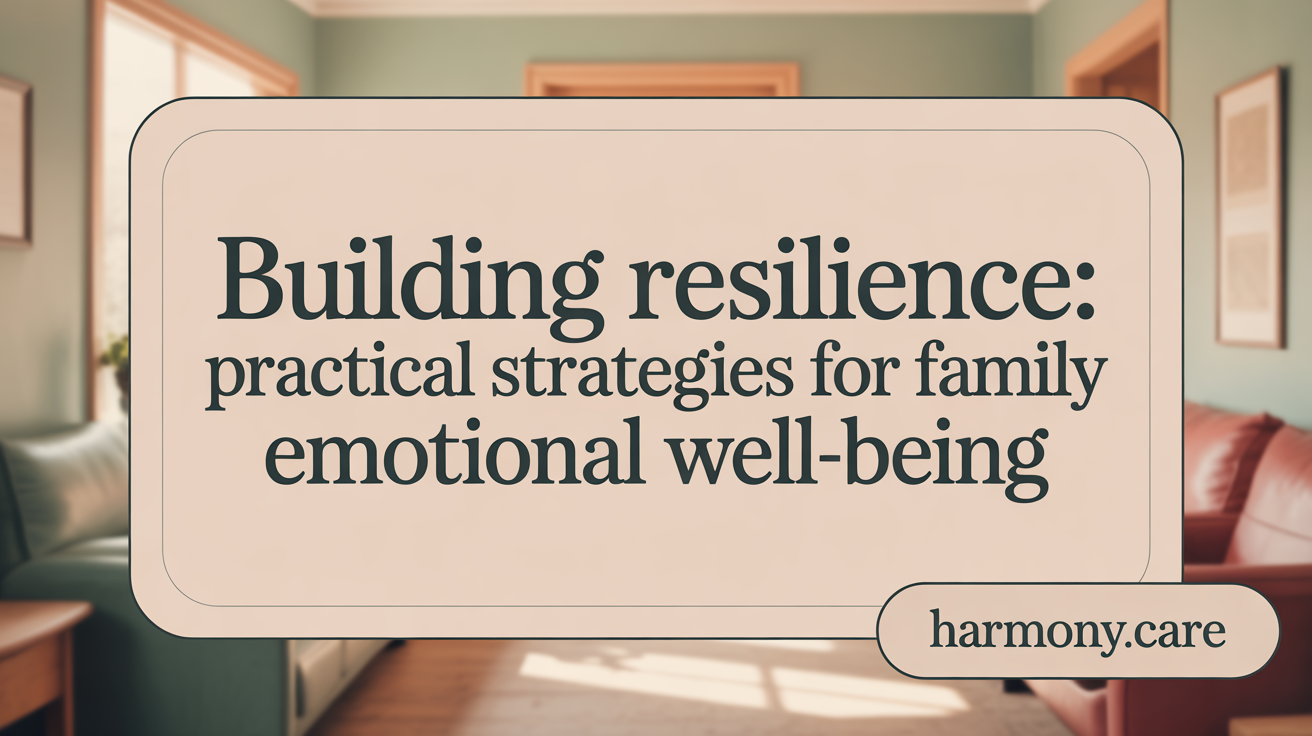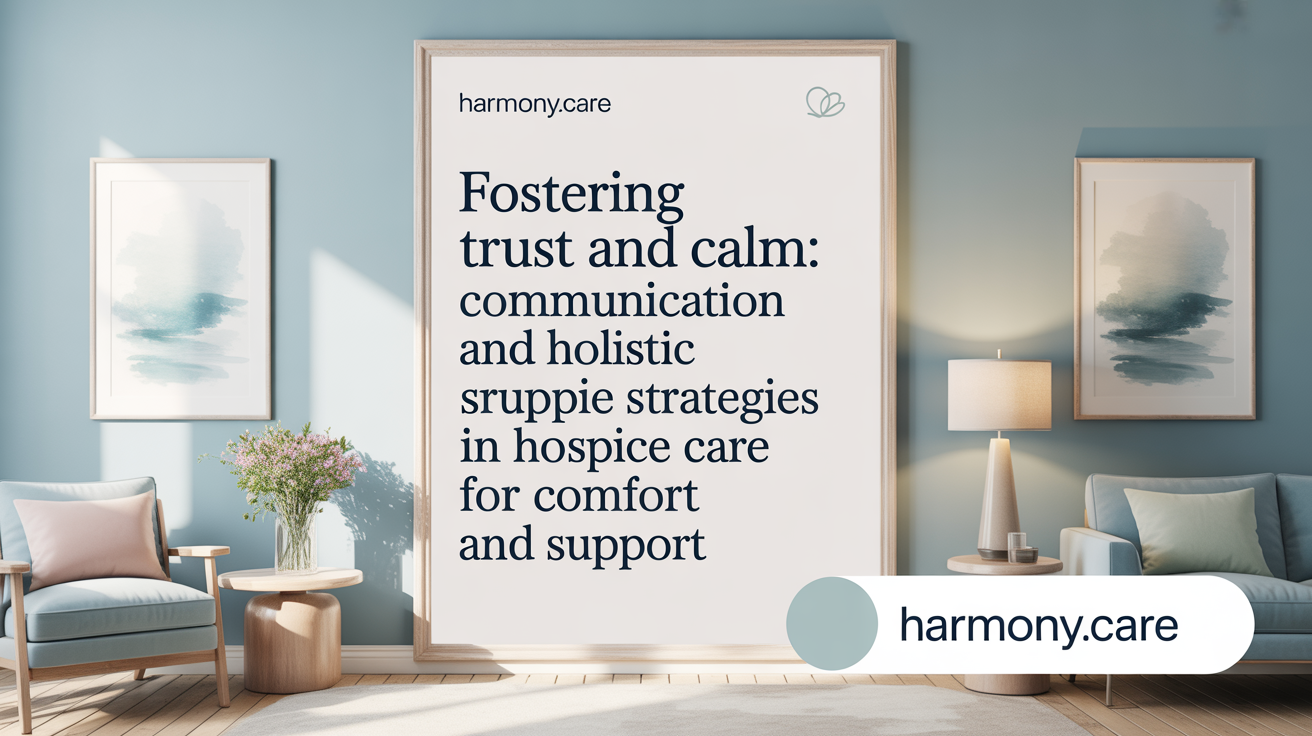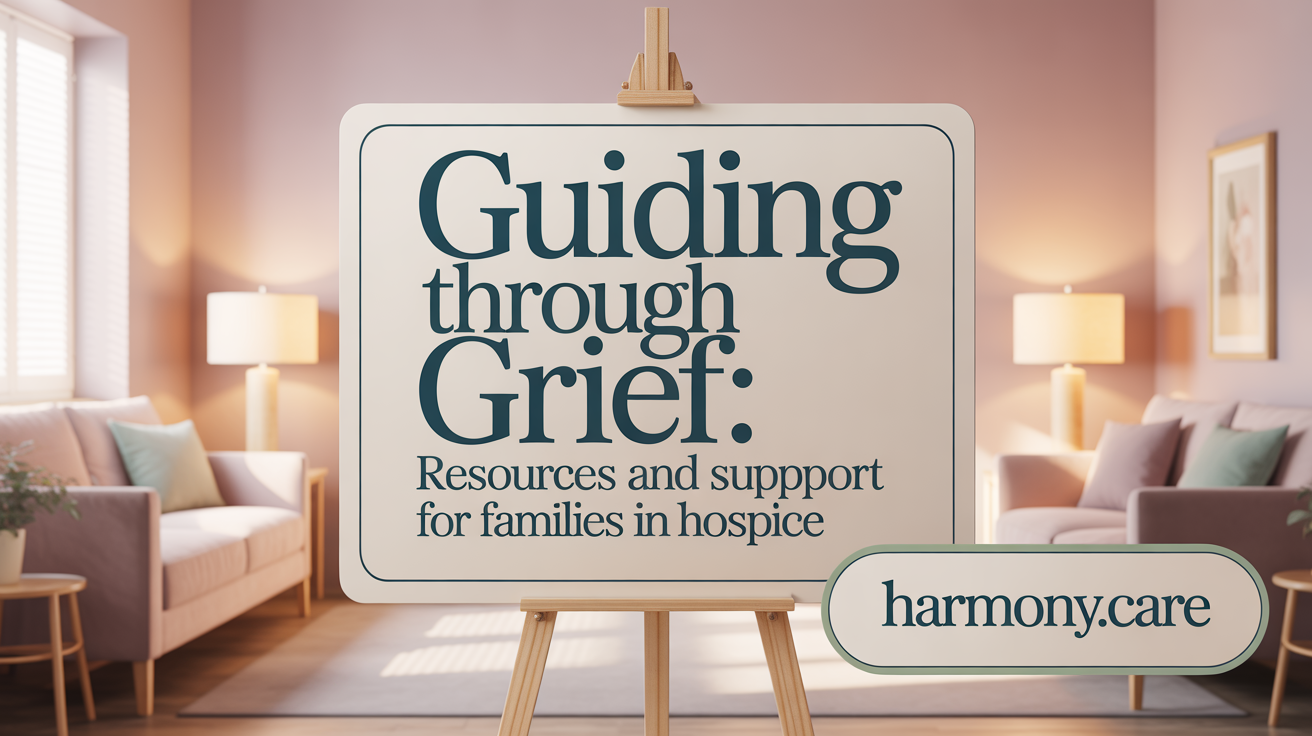Understanding Emotional Support in Hospice Care
Hospice care extends far beyond medical treatment; it embraces emotional, psychological, and spiritual support tailored to both patients and their families. Facing the end of life is an emotionally challenging journey, and families often struggle to cope with complex feelings of grief, anxiety, and uncertainty. Recognizing this, hospice programs provide a range of resources designed to nurture emotional well-being, foster open communication, and support holistic caregiving. This article explores the essential emotional support resources available to families during hospice care, offering guidance, practical strategies, and an overview of professional roles that help ease the emotional burden during this difficult time.
Key Emotional Support Services Offered to Families

What are the main emotional support services provided to families during hospice care?
During hospice care, families receive a range of services aimed at easing emotional burdens and fostering healing. Central to this support are grief counseling sessions and support groups, where families can share their experiences, express feelings, and find comfort in shared understanding. These groups often serve as a vital source of reassurance and community for those facing similar challenges.
Spiritual support is also a cornerstone of hospice care. Chaplains or spiritual caregivers provide personalized guidance aligned with each family's beliefs, helping loved ones find peace, meaning, and closure. Such services often include prayer, meditation, and spiritual counseling, tailored to individual faith traditions.
Hospice teams facilitate opportunities for meaningful goodbyes, encouraging families to honor the lives of their loved ones, which promotes emotional healing. Creating lasting memories through projects like memory books or videos is another comforting practice supported by hospice staff.
In addition to emotional and spiritual care, families are empowered through educational resources. Handbooks, blogs, and online materials demystify the hospice process, soothe anxieties, and equip families with knowledge about managing end-of-life care.
Post-bereavement, hospice care continues to support families with ongoing grief counseling, memorial services, and access to community resources. These comprehensive emotional support services help families navigate the complex journey of grief, fostering resilience and eventual healing.
The Vital Role of Hospice Social Workers and Mental Health Professionals
 Hospice social workers and mental health professionals are essential members of the hospice care team, dedicated to supporting families emotionally during one of the most challenging times in their lives.
Hospice social workers and mental health professionals are essential members of the hospice care team, dedicated to supporting families emotionally during one of the most challenging times in their lives.
Their primary responsibilities include providing counseling, psychotherapy, and grief support to help families cope with the emotional strains of terminal illness and impending loss. These professionals work closely with families to process feelings of grief, anxiety, and depression, offering strategies for emotional resilience and healing.
Beyond emotional support, hospice social workers assist with practical tasks such as care planning, completing legal documents like advance directives, and navigating complex healthcare and social services systems. This guidance alleviates much of the stress and uncertainty families often face.
In times of crisis, they provide critical intervention and conflict mediation, helping families manage difficult conversations, resolve disputes, and address mental health issues. They also facilitate access to community support groups and services, ensuring families do not feel alone in their journey.
Cultural competence is a vital aspect of their work, as they respect each family’s cultural, spiritual, and personal values, tailoring support to meet diverse needs. Advocacy is another key role, where they ensure the patient’s and family’s wishes are honored and that they receive appropriate, dignified care.
By addressing both emotional and practical needs, hospice social workers and mental health professionals foster a holistic approach to end-of-life care. Their efforts help ease the grieving process, promote emotional well-being, and provide families with a sense of comfort, peace, and understanding during a profoundly difficult time.
Supporting the mental health of patients and families ultimately enhances the quality of hospice care, making these professionals indispensable for compassionate, comprehensive end-of-life support.
Strategies for Families to Manage Emotional Well-being

What strategies can families use to manage their emotional well-being during a loved one's hospice care?
Supporting a loved one in hospice care can be emotionally demanding for families. To navigate this challenging time, families are encouraged to foster open and honest communication. Encouraging patients to express their feelings, fears, and wishes helps create an environment of trust and understanding. Family members should also engage with spiritual care providers or chaplains, as spiritual support tailored to individual beliefs can offer comfort, promote peace, and help find meaning during the end-of-life journey.
Participating in meaningful rituals and spiritual practices relevant to the patient's faith or personal beliefs can provide solace and a sense of closure. Creating a peaceful, comforting environment at home or in care facilities can also ease emotional stress. Sharing memories—such as photo albums, videos, or storytelling—strengthens emotional connections and reassures both patients and families.
Taking care of the caregivers is equally important. Families should prioritize self-care activities, including adequate rest, leisure, and engaging in stress-relief practices like gentle exercise or meditation. Accessing support groups, counseling, respite care, and other hospice resources can help caregivers manage their emotional burden and prevent burnout.
Utilizing comprehensive hospice services also plays a critical role in emotional well-being. These include mental health counseling, grief support programs, and bereavement services that extend beyond end-of-life care, offering ongoing emotional support. Overall, embracing a mix of open communication, spiritual engagement, self-care, meaningful moments, and professional support can help families cope more effectively and find resilience during this difficult time.
Effective Communication and Holistic Approaches in Hospice Emotional Care

How does effective communication contribute to emotional caregiving in end-of-life situations?
Effective communication is essential in hospice care for supporting emotional well-being. It builds honesty, trust, and empathy between patients, families, and care teams. Clear and compassionate dialogue allows caregivers to understand the physical, emotional, and spiritual needs of those nearing end of life.
Strategies such as active listening, asking open-ended questions, and sharing information transparently help families navigate complex feelings. These conversations foster emotional closeness, ensure that wishes are heard, and aid in making thoughtful decisions.
Good communication also alleviates anxiety and loneliness. When families feel informed and supported, they can better cope with the stress of loss. Ultimately, respectful and empathetic dialogue creates a foundation for personalized care that promotes dignity and peace during this sensitive time.
What holistic and psychological approaches are used to provide emotional support in hospice settings?
Hospice settings use a variety of holistic and psychological methods to support emotional and spiritual health. Spiritual practices, like prayer, rituals, and conversations about beliefs, provide comfort and help find meaning.
Complementary therapies such as music, art, Reiki, aromatherapy, and massage are employed to reduce physical discomfort and emotional stress simultaneously. These therapies promote relaxation, reduce anxiety, and foster emotional resilience.
Psychological interventions include counseling, support groups, and mindfulness techniques, which help patients and families process grief, fears, and emotional trauma. Social workers and chaplains often facilitate these efforts, ensuring that care addresses the whole person.
By combining spiritual, therapeutic, and expressive therapies, hospice providers create a nurturing environment where patients can find acceptance, peace, and emotional strength during their final journey.
Comprehensive Grief Support and How to Help Families in Hospice Care

What grief support and bereavement resources are available to families during and after hospice care?
Families going through hospice care have access to a variety of supportive resources aimed at easing the emotional burden of loss. Many hospices provide personalized counseling, including individual, family, and group sessions, often at no cost. These can be conducted in person or online, making support more accessible.
Support options extend to remembrance events, holiday coping workshops, art therapy, and programs tailored for children, teens, and caregivers. Practical assistance is also offered, such as help with funeral planning, legal tasks, and financial matters.
After the loved one’s passing, ongoing support continues through crisis helplines, educational materials, and community programs designed to help families process grief, build resilience, and adapt over time. These resources aim to promote healing and understanding, ensuring families feel supported throughout their journey.
How can someone support a family member who has a loved one in hospice care?
Assisting a family member in hospice involves providing both emotional comfort and practical help. Encourage caregivers to take breaks from their duties by offering respite care or simply by listening to their concerns.
Lend a hand with daily chores, such as preparing meals, managing medications, or tidying the home, to reduce their stress. Promoting self-care activities like relaxation techniques or gentle exercise can also help caregivers maintain their well-being.
Connecting caregivers with hospice services, such as support groups or counseling, ensures they do not feel isolated. Open communication and active listening are vital, allowing caregivers to share feelings and receive reassurance. Supporting them with ongoing guidance from healthcare professionals can make a significant difference.
What are the 'three C's' of hospice care and how do they relate to emotional support?
The 'three C's'—Compassion, Comfort, and Communication—are foundational elements that underpin emotional care in hospice settings. Compassion emphasizes empathy and kindness, helping patients and families feel understood and emotionally held during difficult times.
Comfort pertains to symptom management and emotional relief, reducing suffering and fostering a sense of peace. This includes physical comfort as well as emotional support to address fears, anxieties, and grief.
Effective communication ensures transparency and shared understanding. It involves honest conversations about prognosis and treatment options, which empower families to make informed decisions and feel more in control. Meanwhile, some care models incorporate Choices and Adjustments, helping families navigate grief, honor individual needs, and foster resilience.
By integrating these principles, hospice care creates a supportive environment where emotional needs are prioritized, helping families find solace and strength during life's final chapters.
| Aspect | Description | Additional Notes |
|---|---|---|
| Support Services | Counseling, support groups, art therapy, remembrance events | Available during and after hospice care |
| Practical Aid | Funeral planning, legal, financial help | Helps reduce stress related to logistics |
| Caregiver Support | Respite care, education, peer groups | Promotes well-being, prevents burnout |
| Emotional Framework | Compassion, Comfort, Communication | Foundation of holistic hospice care |
| Additional Resources | Online platforms, community programs, spiritual guidance | Extended support and resilience building |
Embracing Support for a Compassionate Hospice Experience
Emotional support is an indispensable component of hospice care that helps families navigate the profound challenges that arise during end-of-life journeys. Through specialized services like counseling, grief support, spiritual care, and holistic therapies, hospice programs offer families comfort, understanding, and empowerment. The multidisciplinary hospice team—including social workers, chaplains, nurses, and counselors—works collaboratively to address not only physical needs but also emotional, psychological, and spiritual well-being. By fostering open communication, providing educational resources, and encouraging self-care and community connection, hospice care creates a supportive environment where families can find peace and resilience. Ultimately, the compassionate emotional support available during and after hospice care enables families to honor their loved ones with dignity and navigate grief with hope and healing.
References
- 10 Essential Ways Hospice Can Provide Emotional Support to ...
- Top Hospice Resources for Caregivers & Families
- Hospice Tips for Caregivers: Support, Resources & Self-Care
- Hospice Foundation of America: Home
- How Hospice Care Supports Family Members and Caregivers
- Providing Care and Comfort at the End of Life
- Hospice Care Resources for Patients
- Honoring Hospice Social Workers: Emotional Support at Life's End
- Coping with Grief: Resources for Families After Hospice Care
- End-of-Life Care Resources and Support for Families
